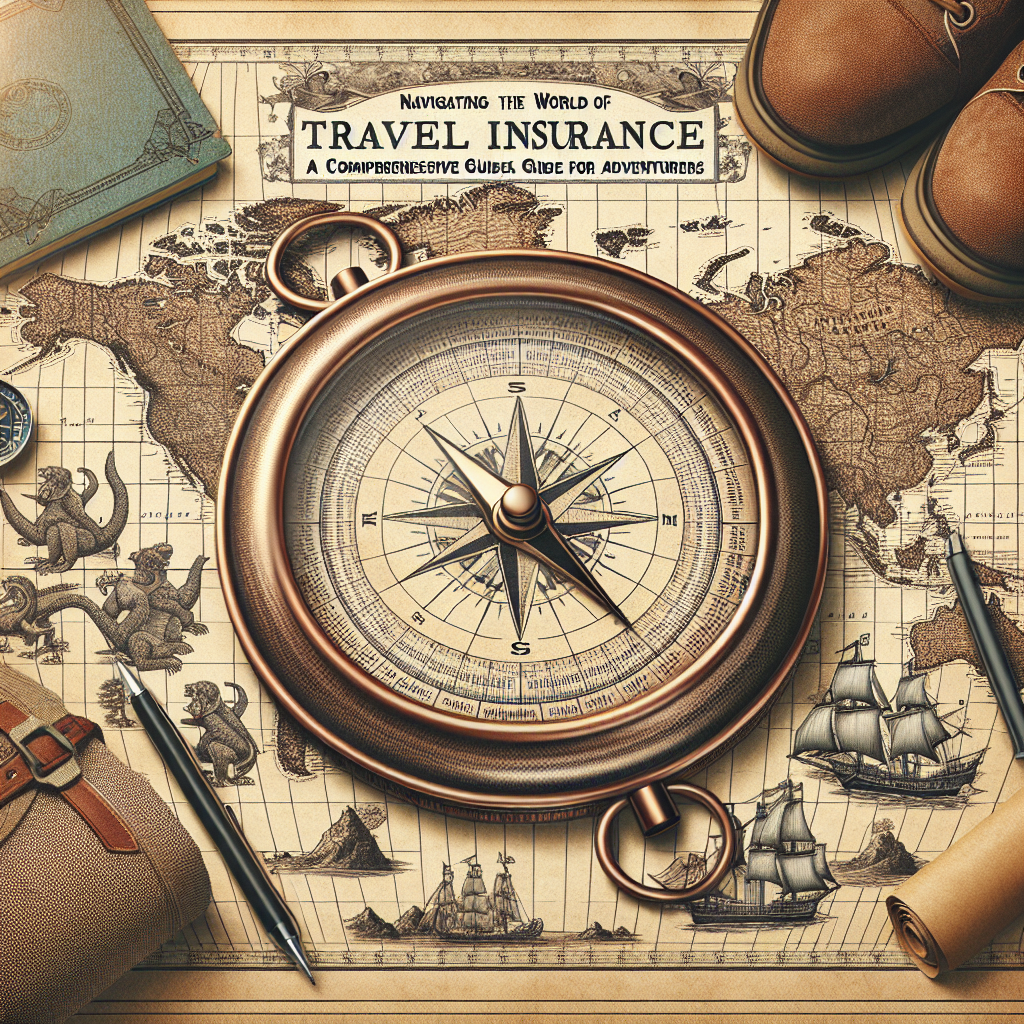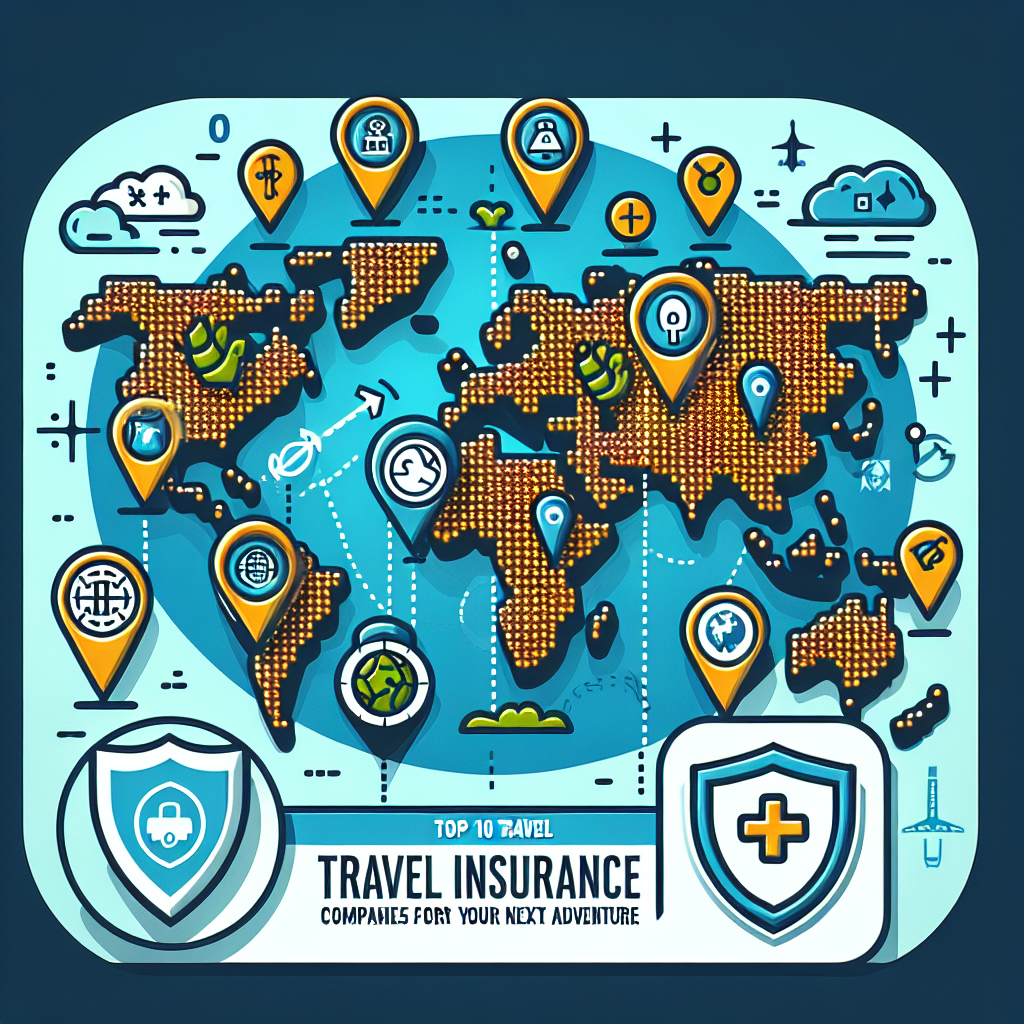Navigating the World of Travel Insurance: A Comprehensive Guide for Adventurers
Traveling the world is one of life’s greatest joys, offering the chance to explore new cultures, savor delicious cuisines, and embark on thrilling adventures. However, as exhilarating as travel can be, it often comes with inherent risks—such as trip cancellations, medical emergencies, lost luggage, and unexpected natural disasters. This is where travel insurance steps in, providing travelers with peace of mind and financial protection. With various options and plans available, choosing the right travel insurance can feel overwhelming. This comprehensive guide aims to help adventurers navigate the world of travel insurance effectively. Understanding Travel Insurance Travel insurance is a policy designed to cover financial loss associated with various travel-related incidents. It comes in various forms, including: Trip Cancellation Insurance: Reimburses non-refundable travel expenses if you have to cancel your trip due to unforeseen circumstances, such as illness or a family emergency. Medical Coverage: Provides reimbursement for medical expenses incurred while traveling, which can be critical if you fall ill or have an accident abroad where your regular health insurance may not apply. Evacuation Coverage: Covers the cost of emergency medical evacuation to a hospital or back to your home country if necessary. Baggage and Personal Property Insurance: Offers protection for lost, stolen, or damaged luggage and personal belongings during your trip. Emergency Assistance Services: Many plans include 24/7 assistance services that can help you find medical facilities or arrange emergency travel. Why Do You Need Travel Insurance? 1. Medical Emergencies Abroad When traveling internationally, standard health insurance policies often do not extend coverage. In the event of a medical emergency, you could be faced with exorbitant medical bills. Travel insurance ensures that you have access to necessary medical care without the financial burden. 2. Trip Disruptions and Cancellations Life is unpredictable. Whether it’s a sudden illness, a family emergency, or a cancellation due to weather conditions, travel insurance can help recoup your financial losses. It can cover costs like hotel bookings, flight tickets, and even pre-paid activities. 3. Peace of Mind Having travel insurance allows you to focus on your adventure rather than worrying about the “what ifs.” Knowing that you are covered against various travel-related mishaps can significantly enhance your travel experience. Key Considerations When Choosing Travel Insurance 1. Assess Your Needs Before purchasing a policy, evaluate your travel plans and personal needs. Be honest about your health, the activities you’ll engage in, and potential risks associated with your destination. If you’re planning adventurous activities (e.g., skiing, scuba diving, trekking), ensure your policy covers high-risk activities. 2. Compare Policies Different providers offer various coverage options, limits, and exclusions. Use comparison websites or consult an insurance agent to understand the differences between plans and find the one that best fits your needs. 3. Check Coverage Limits and Exclusions Thoroughly read the fine print of any policy. Pay close attention to coverage limits (the maximum amount you can claim) and exclusions (situations that are not covered). Ensure the policy provides adequate medical coverage and allows for high-risk activities if applicable. 4. Understand Claims Process Before purchasing, understand how the claims process works. Look for providers with good customer service reputations and clear claims procedures, as this will be critical if you need assistance during your travels. 5. Read Reviews and Get Recommendations Consult reviews from other travelers and seek recommendations from friends or travel forums. Personal experiences can provide insight into the reliability and responsiveness of different insurance companies. Tips for Using Your Travel Insurance Keep Essential Documents Handy: Carry your insurance policy information and emergency contact numbers while traveling. Understand How to File a Claim: Familiarize yourself with the claims process, including necessary documentation required for reimbursement. Document Everything: In case of an incident, save receipts, take photos, and gather relevant information. Documentation will be crucial for a successful claim. Inform Your Insurance Provider of Changes: If your travel itinerary changes, notify your insurance provider to ensure your coverage remains valid. Conclusion Travel insurance is a crucial part of planning any adventure, offering a safety net that allows you to explore the world with confidence. By understanding your options, assessing your own needs, and choosing the right policy, you can mitigate risks and focus on creating unforgettable memories. As you embark on your next journey, remember: a little preparation can go a long way in ensuring a smooth and enjoyable travel experience. Bon voyage!





